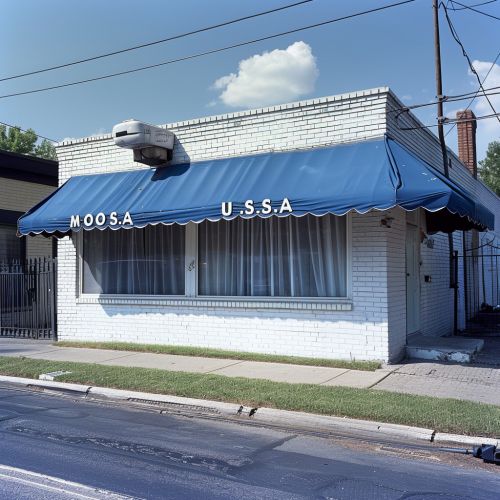Motown Records: Difference between revisions
(Created page with "== History == Motown Records, originally founded as Tamla Records on January 12, 1959, by Berry Gordy, is an American record label that played a pivotal role in the racial integration of popular music. The label was instrumental in the success of African American artists during a time when racial segregation was still prevalent in the United States. Gordy, who had a background in the automotive industry, applied the principles of assembly line production to the crea...") |
No edit summary |
||
| Line 5: | Line 5: | ||
Motown's first major hit was "Money (That's What I Want)" by Barrett Strong in 1960. This success was followed by a string of hits from artists such as [[The Supremes]], [[The Temptations]], [[Marvin Gaye]], [[Stevie Wonder]], and [[The Jackson 5]]. The label's distinctive sound, characterized by a blend of pop, soul, and R&B, came to be known as the "Motown Sound." | Motown's first major hit was "Money (That's What I Want)" by Barrett Strong in 1960. This success was followed by a string of hits from artists such as [[The Supremes]], [[The Temptations]], [[Marvin Gaye]], [[Stevie Wonder]], and [[The Jackson 5]]. The label's distinctive sound, characterized by a blend of pop, soul, and R&B, came to be known as the "Motown Sound." | ||
[[Image:Detail-91211.jpg|thumb|center|Exterior view of Motown's original studio, Hitsville U.S.A., a modest white house with a blue awning.|class=only_on_mobile]] | |||
[[Image:Detail-91212.jpg|thumb|center|Exterior view of Motown's original studio, Hitsville U.S.A., a modest white house with a blue awning.|class=only_on_desktop]] | |||
== The Motown Sound == | == The Motown Sound == | ||
Latest revision as of 08:01, 22 June 2024
History
Motown Records, originally founded as Tamla Records on January 12, 1959, by Berry Gordy, is an American record label that played a pivotal role in the racial integration of popular music. The label was instrumental in the success of African American artists during a time when racial segregation was still prevalent in the United States. Gordy, who had a background in the automotive industry, applied the principles of assembly line production to the creation of music, resulting in a highly efficient and successful business model.
Motown's first major hit was "Money (That's What I Want)" by Barrett Strong in 1960. This success was followed by a string of hits from artists such as The Supremes, The Temptations, Marvin Gaye, Stevie Wonder, and The Jackson 5. The label's distinctive sound, characterized by a blend of pop, soul, and R&B, came to be known as the "Motown Sound."


The Motown Sound
The "Motown Sound" is a style of soul music with a distinct pop influence. It is characterized by the use of tambourines to accent the backbeat, prominent and often melodic electric bass-guitar lines, distinctive melodic and chord structures, and a call-and-response singing style that originated in gospel music. The sound was crafted by a team of producers and songwriters, including Smokey Robinson, Holland–Dozier–Holland, and Norman Whitfield.
The Motown house band, known as The Funk Brothers, played a crucial role in creating this sound. Their tight, rhythmic playing and innovative arrangements were foundational to the label's success. The Funk Brothers were a group of highly skilled session musicians who performed on most of the label's recordings during the 1960s.
Key Artists and Releases
Motown Records was home to many legendary artists whose music has had a lasting impact on popular culture.
The Supremes
The Supremes, led by Diana Ross, were one of Motown's most successful acts. They achieved twelve number-one hits on the Billboard Hot 100, including "Where Did Our Love Go," "Baby Love," and "Stop! In the Name of Love." Their polished image and crossover appeal helped break down racial barriers in the music industry.
The Temptations
The Temptations were known for their intricate harmonies, choreography, and distinctive style. Hits like "My Girl," "Ain't Too Proud to Beg," and "Papa Was a Rollin' Stone" showcased their versatility and vocal prowess. The group underwent several lineup changes but remained a significant force in soul music.
Marvin Gaye
Marvin Gaye's career at Motown began with hits like "How Sweet It Is (To Be Loved by You)" and "I Heard It Through the Grapevine." He later transitioned to more socially conscious music with the release of the landmark album "What's Going On," which addressed issues such as poverty, drug abuse, and environmental concerns.
Stevie Wonder
Stevie Wonder, a child prodigy, signed with Motown at the age of eleven. His early hits included "Fingertips" and "Uptight (Everything's Alright)." As he matured, Wonder gained creative control over his music, resulting in critically acclaimed albums like "Innervisions," "Songs in the Key of Life," and "Talking Book."
The Jackson 5
The Jackson 5, featuring a young Michael Jackson, brought a youthful energy to Motown. Their debut single, "I Want You Back," was a massive hit, followed by other chart-toppers like "ABC" and "I'll Be There." The group's success helped launch Michael Jackson's solo career.
Business Model and Marketing
Motown's business model was innovative for its time. Berry Gordy structured the company like an assembly line, with specialized teams handling different aspects of the music production process. This included songwriting, production, artist development, and marketing. The label's in-house talent development program, known as "Artist Development," was responsible for grooming artists in areas such as stage presence, choreography, and public relations.
Motown's marketing strategy was also groundbreaking. The label focused on creating a polished, sophisticated image for its artists, which helped them appeal to a broader, racially diverse audience. This approach was instrumental in breaking down racial barriers in the music industry and achieving crossover success.
Legacy and Influence
Motown Records' influence on popular music and culture is immeasurable. The label not only produced a wealth of timeless music but also played a crucial role in the civil rights movement by promoting African American artists and fostering racial integration in the music industry. The "Motown Sound" has influenced countless artists across various genres, from pop and rock to hip-hop and R&B.
The label's legacy is preserved through numerous compilations, reissues, and documentaries. The Motown Museum, located in the original Hitsville U.S.A. building in Detroit, serves as a testament to the label's enduring impact on music and culture.
